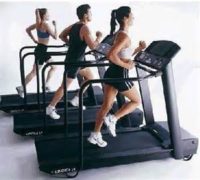As a sports nutrition counselor and writer, I try my best to keep up with the latest science regarding ways that athletes can enhance their performance. My clients often ask if they should get blood tests to assess performance-related nutrients. At this year’s meeting of The American College of Sports Medicine (ACSM; the nation’s largest group of exercise physiologists, sports nutritionists, and other sports medicine professionals), the topic of blood tests that measure biomarkers was addressed by exercise physiologist Shawn Arent, PhD, CSCS, FACSM of the University of South Carolina. Biomarkers are substances in your body that are indicators of physiological processes. For example, endocrine biomarkers measure stress and adaptations to training. Biochemical biomarkers measure muscle damage and inflammation. Nutritional biomarkers measure the impact of diet, such as on blood glucose and iron levels.
Biomarkers are best used to document changes over time (as opposed to taking just one blood test, such as serum ferritin, to see if the measurement simply falls within normal limits). Biomarker data can help assess changes in performance, recovery, and training optimization. Biomarkers might be able to predict and prevent illness. In an 8-week basic training study, a third of the soldiers whose biomarkers classified them as being over-reached experienced illness.
Biomarker research
The military and some professional athletes and teams are very interested in measuring biomarkers. Connecting biomarkers to measurables like performance, training, sleep, and diet provides context and meaning to the measurements. By keeping athletes healthy and in the game, the likelihood of a winning season improves.
•With biomarker research, we now know that food deprivation can be more detrimental to performance than sleep deprivation. Many markers can take a full month post-dietary restriction to get back to normal. With Army ranger training, a 1,000 calorie per day deficit reduced testosterone and increased cortisol.
• Biomarkers can document the physiological impact of restrictive food intake and show how much better athletes can recover when they are adequately fueled.
• Both physical and psychological stress impact biomarkers, as does travel through time zones. Seeing sleep data can help athletes learn the value of prioritizing sleep.
Wave of the future?
Athletes interested in getting their biomarkers measured should know this is an emerging field with yet unanswered questions, including:
—What is the best time to measure biomarkers? (Should recovery markers be measured right after exercise or a day later?)
—How often should measurements be taken? (Might depend on who is paying the bill!)
—Should athletes not exercise the day before blood draws/data collection?
—Do biomarkers differ when measured under research conditions? (That is, does lab data compare to data collected at real-life competitive events?)
—What is the minimal performance-enhancing level of a biomarker? Is higher better? When is a level too low?
—Can biomarkers predict and prevent illness?
—And very importantly, will coaches (and athletes) be willing to alter their training schedules based on biomarkers? Coaches’ buy-in is essential, as is the athlete’s willingness to alter training plans.
With time and well-established protocols for measuring biomarkers, this evolving field will have a significant impact on improving the health and performance of members of the military, professional athletes, as well as curious consumers who can afford this luxury.
Sports nutritionist Nancy Clark MS RD CSSD has a private practice in the Boston area. She is author of the best-selling Nancy Clark’s Sports Nutrition Guidebook and co-leader of an online sports nutrition workshop. Visit www.NancyClarkRD.com for more information.
—

